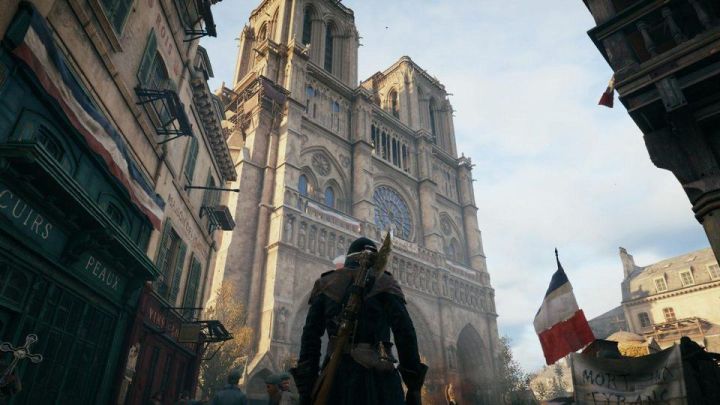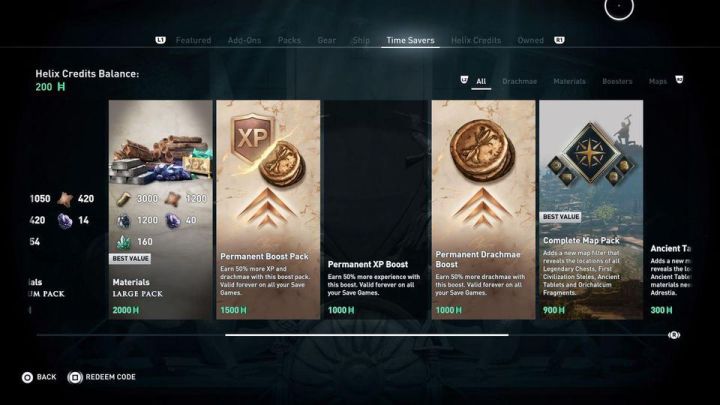I recently completed the main story in Ubisoft’s latest entry in their popular historical fantasy series, Assassin’s Creed. The game built on its predecessor, Origins, and fully embraced its RPG mechanics, complete with branching quests, dialogue options and level scaling enemies. Ubisoft seriously took a page out of Witcher 3’s book. The map was huge and centred on Greek history and even mythology circa 430 B.C. But despite the rich setting, new mechanics and massive world, something was off.
Upon competition, I felt that Odyssey strayed too far from the DNA of what makes an AC game. Not only was the conflict with Templars and Assassins basically gone, but the series has lost its identity. On top of that, the game didn’t feel very polished to me. Granted, I was also playing Red Dead Redemption 2, which may be the bar for open-world games at this point in time, but something felt off none the less as a long time fan of the series.
So I popped 2016’s Assassin’s Creed Unity into my PS4 because I felt something was off. I didn’t feel like I had just finished an Assassin’s Creed game. I wanted something else than what I had just played. When Unity first came out, it was the laughing stock of the gaming community for launching broken and buggy. Just take a look at the video below from Gameranx showcasing some of them.
But as I began replaying Unity, (which is now patched and runs much better)I began to notice that this older game played much better than Odyssey as well as looked better, both from an artistic graphical standpoint as well as animation in movement. It ironically, despite its launch, felt more polished, as if more time and thought when into meticulously placing everything and putting more animations into the movements. The huge crowds, the to-scale buildings like Notre Dame, the lavish palaces and dirty slums all felt alive and wonderfully realized.

The game also had a much higher emphasis on stealth, something the series has seemingly abandoned now that it’s an RPG. Combat is the name of the game now. Even if you want to play stealthy in Odyssey, the level scaling makes it near enough impossible as you can no longer one-shot a higher levelled enemy. You have to level up all your stealth perks and hope that you can take out that one guy effectively or else, your stealth run is bust. Unity, on the other hand, has a dedicated stealth button and encourages you to sneak and stealth. Considering the game is called “Assassins” Creed, you’d think this would be the name of the game. Here’s a dev walkthrough which features them explaining their new combat mechanics.
In September 2019, Yves Guillemot of Ubisoft spoke about the future of the franchise, telling us that Assassin’s Creed games will continue to get bigger and bigger as they go on. He was specifically asked if the series will return to a smaller, focused game like Unity and he simply replied “no”, stating:
“Our goal is to make sure you can have a Unity within an Odyssey. If you want to have a story of 15 hours, you can have it, but you can also have other stories. You live in that world and you pursue what you want to pursue. You have an experience, many Unity-like experiences.”
Of course, Odyssey’s gaming model and world design are built around microtransactions and season passes, so while the cost of the game remains the same despite developer costs going up, the developers are now aiming to make games that last longer in order to bring in more profit for their labours. So a game like Unity just isn’t financially possible for a studio like Ubisoft any more-or they don’t see it as a possibility. So we have to get used to this new direction for the franchise.


So while there is more, more, more in Assassin’s Creed these days, it’s also less as the overabundance has resulted in less innovated or impactful gameplay. I quite enjoyed Origins, for the record, but I do not like the new direction the franchise is heading based on gameplay style, direction and quality. Odyssey felt bloated and lazier than a game like Unity, which looks better than Odyssey despite being four years older. Give me Unity over Odyssey.

3 thoughts on “‘Assassin’s Creed Unity’ Succeeds Where ‘Odyssey’ Stumbles – ScreenHub Entertainment”